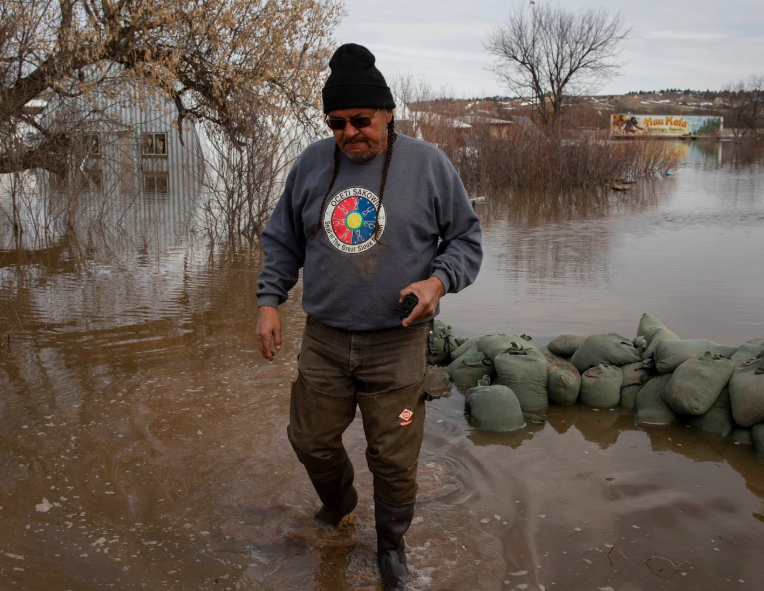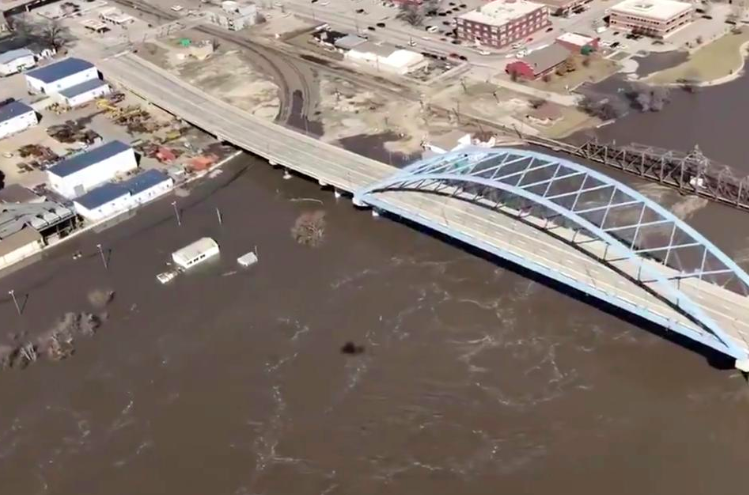
Henry Red Cloud on the Pine Ridge Reservation in South Dakota Photo: Kristina Barker for The New York Times
Last weekend, Missouri River flood waters in Kansas City overwhelmed city water treatment plants and the City was required by law to notify citizens that their drinking water had failed to meet a state safety standard. The City maintained that drinking water was nevertheless safe to cook and bathe and did not give an order to boil water, though it did warn that the water might not be safe for infants, the elderly or people with compromised immune systems. According to Reuters:
- The Missouri River crested at higher than 32 feet on Friday at the waterfront city of St. Joseph, Missouri, which was a record, and the flooding forced 7,500 people to evacuate low-lying areas in the city.
- Water tests in Kansas City showed excessive levels of turbidity, fine particles in the water that could contain bacteria, viruses, and parasites including Cryptosporidium, which could lead to serious illness.
- Kansas City Water serves 177,000 mostly residential customers by drawing water from the Missouri River.
- Another wastewater treatment plant about 30 miles upstream in Leavenworth, Kansas, a historic town of 35,000 on the river’s west bank, sustained broken pumps when it was submerged by floodwater, threatening that town’s drinking water as well.
Meanwhile, the Pine Ridge Indian Reservation in South Dakota, described by The New York Times as “a stunning stretch of land larger than Delaware,” is dealing with a full-fledged humanitarian disaster due to the flooding as many elderly tribe members remain stranded in isolated areas trapped by floodwaters and/or mud. At first, help was slow to arrive on the Reservation, but since the weekend, when Governor Kristi Noem visited, the state had sent ATVs, a boat rescue team and a small group of National Guard soldiers to distribute drinking water.
Why This Matters: Property losses from the floods so far have been estimated at more than $3 billion in Iowa and Nebraska alone. There are many people who still need help. Anheuser-Busch and MillerCoors are stepping up their competition in a good way — each company has donated hundreds of thousands of cans of water to communities in Iowa and Nebraska. This sort of corporate charity is a testament to how we band together to help those in times of need in this country, but it is not enough to help all those who need the water, and it is not really a long term solution to climate-related disasters. It is also likely that other drinking water systems will fail during extreme flooding events, and that the public’s faith in government will be strained when water quality testing failures do not result in public safety measures being implemented.

The Kansas side of the Missouri River is seen in Atchison, Kansas Image: Shawn Rizza via Reuters from social media
March 26, 2019 » bottled water, Budweiser, disaster assistance, drinking water, emergency, flood, Kansas City, Leavenworth, Missouri River, turbidity

